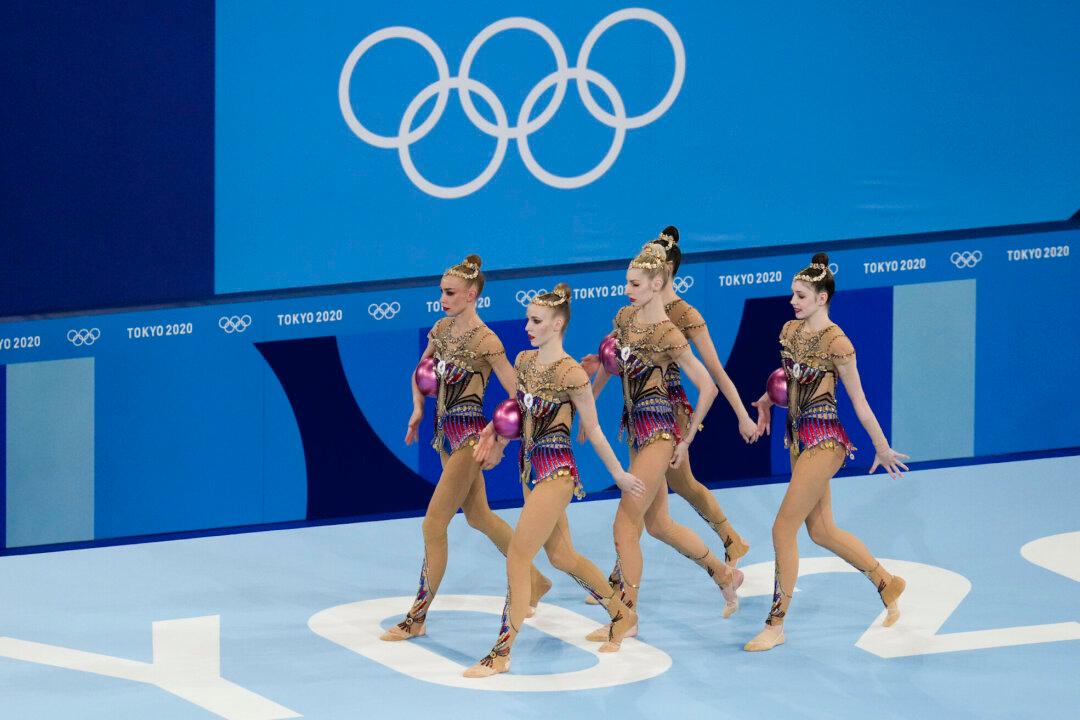TOKYO—The Russian rhythmic gymnastics juggernaut collapsed at the Tokyo Olympics, with dramatic back-to-back losses that sparked allegations of injustice in a sport famous for twinkling costumes, techno remixes, and hoops looping through the air.
Russia had won every gold medal in rhythmic gymnastics since 2000. But it’s total defeat this year began Saturday, when Linoy Ashram of Israel won gold in the individual competition, edging out of a pair of Russian identical twins who were the favorites heading into Tokyo. Dina Averina placed second and her sister, Arina, fell to fourth.





